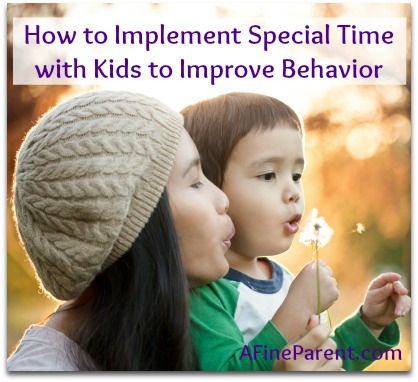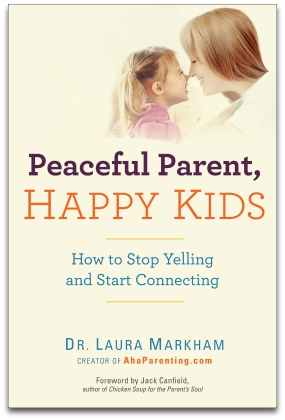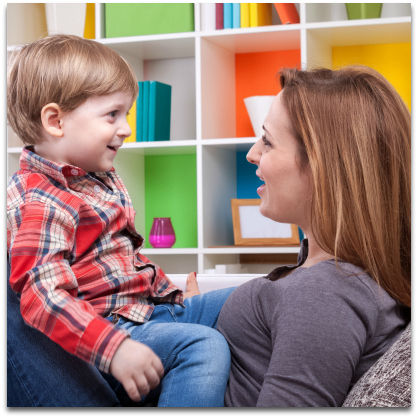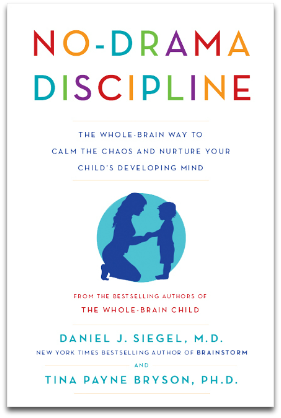 “Noooo!”
“Noooo!”
His high-pitched shout echoed down the hall.
“Buddy, please just go put on your shoes. I don’t want to ask you again.”
“I don’t want to!”
I sighed loudly as I braced myself for yet another showdown.
My five-year-old had been pushing all my buttons for weeks. He was cranky and would balk at the simplest requests. The sass had reached an all-time high.
On top of that, he was incredibly needy even though we were spending almost every day together.
I was at my wits end, and I felt like our relationship was really struggling. It was one of those seasons in parenting when I was at a complete loss for what to do next, even though I knew something had to change.
Ever been there?
If you have, you know it’s not a fun place to be.
It was during this time of desperately searching for some solution, when a parenting webinar led me to the work of Dr. Laura Markham and her book, Peaceful Parent, Happy Kids: How to Stop Yelling and Start Connecting.
The title immediately caught my eye. I longed for a peace-filled home, and of course I wanted happy kids. What parent doesn’t?
Sheer frustration had me yelling way more than I ever imagined I would, and I knew the connection with my son was suffering greatly as a result. This book couldn’t arrive fast enough!
I dove right in, and when I read the section about spending special time with kids, a light bulb went off.
I realized although my son was around me for a significant part of each day, we often weren’t spending quality one-on-one time together. With his little brother to care for, along with the general busyness of life, I just wasn’t paying enough attention to him. (It pains me to say that aloud.)
His neediness that, at times, was downright exhausting was a clue. His defiance and cranky attitude? Also clues. I was not giving him the connection time that he needed.
I didn’t know if having special time with my son was going to bring harmony back to our relationship, but I was eager to give it a shot.
 According to Dr. Markham, “Special time is simply time that you spend one-on-one, focusing solely on your child.” In her book, Dr. Markham shares six key components of special time with kids: avoiding structured activities, saying “yes,” letting your child lead, learning instead of teaching, don’t ask questions,and staying present.
According to Dr. Markham, “Special time is simply time that you spend one-on-one, focusing solely on your child.” In her book, Dr. Markham shares six key components of special time with kids: avoiding structured activities, saying “yes,” letting your child lead, learning instead of teaching, don’t ask questions,and staying present.
I sat down and journaled about how I could apply these components to my parenting. Here is what I came up with…
Avoiding Structured Activities
While my son would probably enjoy showing me the latest level he has achieved on his video game, this type of activity doesn’t really help us connect because we are both focused on the screen rather than on each other.
A better bet? Activities that are more playful and encourage communication and imagination, like building a fort or playing tag.
My son and I love to build Legos together. We get to build our pieces and houses or spaceships, and then we make up a story to go along with it and have our Lego figures move around. It stretches both of our imaginations and I get to find out more about what is really happening inside that head of his.
Saying “Yes”
 Think about how many times you have to tell your children “no” throughout the day. I was shocked to catch myself saying “no” all the time!
Think about how many times you have to tell your children “no” throughout the day. I was shocked to catch myself saying “no” all the time!
If there is something that your child wants to do that you had to say “no” to earlier, special time is a great opportunity for you to say “yes!” There are certain games in our house that are still off limits to my youngest, but my oldest loves playing them when it’s just the two of us.
I also like to have a day of saying “Yes.” Can we go to the park? “Yes!” Can we get ice cream? “Yes!” This day where everything is Yes and nothing is No helps to reset our relationship. It turns an ordinary day into something creative and whimsical!
Letting your Child Lead
Nothing ruins special time with kids faster than mom or dad laying down the law about how things should go. I actually once got into an argument with my son about how many bracing posts were needed in order for our fort to stay upright. (Not one of my finer moments.)
Was I trying to be helpful? Yes. Did it help? Um . . . no.
When we allow our children take the lead, we give them an opportunity to gain self-confidence.
According to an article featured on TodaysParent.com, we can help our children build self-esteem by letting them “take risks, make choices, solve problems and stick with what they start.”
We also find out a little more about them. What do they think is important? What activities do they gravitate towards? What is special to them? It’s a magical adventure.
Learning Instead of Teaching
Special time with kids is a unique opportunity where you get to experience the world through the eyes of your child. Let them teach you a thing or two for once. You might be surprised at what you learn!
This also gives your child a chance to gain mastery of a new skill. After all, teaching someone else how to do something is a great way to increase your own understanding!
When we follow our children instead of pushing them from one activity to another we let them start to experience mastery of a subject. Sal Kahn, of Kahn Academy has suggested that if we give the child as much time as they need to master an activity we allow them to set the foundation for later learnings.
Don’t Ask Questions
 During special time, kids are allowed to let their imaginations run wild as they engage in free play. Asking a bunch of questions can interrupt their train of thought, and send them right out of this creative thinking mode.
During special time, kids are allowed to let their imaginations run wild as they engage in free play. Asking a bunch of questions can interrupt their train of thought, and send them right out of this creative thinking mode.
According to an article written by Alice Sterling Honig, Ph.D, “creative power increases a young child’s desire to learn and supports intellectual development.” Every time a child is encouraged to let their creative juices flow, their creative-thinking abilities grow.
Stay Present
This is a toughie! If you are anything like me, your mind is constantly racing with lists of to-dos and responsibilities. It is hard at times to disconnect from the demands of life and simply focus on your child. But if you are only partially invested in special time, your child will pick up on that.
Put the phone away. Turn the television off. Look into your child’s eyes. Study his sweet face. Drink it all up. They will only be this age once.
Benefits of Special Time with Kids
Now that you know what special time with kids is and how to best implement it, you might be wondering about the benefits of this dedicated one-on-one time. According to Dr. Markham, special time reconnects our children with us, gives them the chance to share any big feelings they might be experiencing, and deepens our empathy for our child.
Special time gives us a chance to regularly connect with our children in a way that is meaningful to both the parent and the child.
Once I started implementing special time with my son on a regular basis, things quickly started going in a much more positive direction!
Simple requests from me were completed with little or no fuss instead of turning into major battles. His general attitude towards me improved, and he was much more content playing on his own after we had spent some quality time together.
Were things suddenly perfect? No. But there were definitely noticeable changes.
Besides the positive changes with his behavior, special time has benefited me in other ways I wasn’t expecting!
So often we are so caught up in the hustle and bustle of life, we forget to just pause and truly appreciate our kids. Special time allows me to focus on so many of the little things I absolutely love about my son—his creativity, the joy he finds in trying new things, his funny personality, and his unique way of viewing the world. Being able to spend this special time with him is such a gift.
How Much Time Does it Take to be Special?
By this point, you might thinking, “This sounds great in theory, but how much time are we talking about?”
Ideally, special time with kids should last for a minimum of 10 minutes per day. Of course, the more time you can spend truly connecting with your child the better, but sometimes 10 minutes is all I have. And here’s how I make it work.
We no longer allow screen-time after dinner. The time between when dinner is over and when the bed-time routine begins is spent with each other, rather than staring at a screen. (This goes for both parents and kiddos!)
I always try to turn the notifications off on my phone during special time or put it on vibrate. Put it in the other room if the temptation to check it is too much.
Since I have two kids and the key to special time is one-on-one attention, having my husband engaged with our youngest while spending one-on-one time with my oldest is a win/win for all of us.
If a spouse or other family member is not available to help, try setting up something for your other child/children to do and then hold special time in a different room. Remember, even 10 minutes per day works wonders when done consistently.
 Sometimes, I need to actually plan it into our schedule. On those days that we spend a lot of time away from home, I find it helpful to figure out exactly when I will make special time happen. Treating it like an important appointment helps make it a priority.
Sometimes, I need to actually plan it into our schedule. On those days that we spend a lot of time away from home, I find it helpful to figure out exactly when I will make special time happen. Treating it like an important appointment helps make it a priority.
Friends, if you have multiple children and are feeling overwhelmed at the thought of trying to carve out 10 minutes per kiddo per day, just do the best you can! This is not an all or nothing idea. Any time spent in connection with your child is fantastic!
Even with just a few minutes of true connection you can start seeing a less reactive child and a deeper relationship with your child. In their book No-Drama Discipline, Dr. Daniel J. Siegel and Dr. Tina Payne Bryson, also highlight how this kind of connection with the parent starts to enable the brain to “more effectively communicate with and override the lower, more primitive impulses.”
In other words, connecting with your child actually helps them develop better self-regulation.
In our fast-paced world, dedicating time each day to simply connect with our kids can feel like a luxury rather than a given. But your efforts toward creating this special time with kids will be well worth it. Happy connecting!
2-Minute Action Plan for Fine Parents
Take a few moments to reflect on the following questions:
- What are the barriers that keep me from truly being able to focus on my child(ren), and what can I do to alleviate some of those barriers?
- What are some time-traps I fall into each day that could be better spent enjoying one-on-one time with my child(ren)? (Ex: scrolling on Facebook, checking e-mail, etc.)
- Are there any activities that my child has been wanting to try that I have typically said no to? Is there a way I could incorporate these activities into our special time?
Ongoing Action Plan for Fine Parents
Set aside time each day this week to connect with each of your children on a one-on-one basis.
You might not be able to start with thirty minutes per day. AND THAT’S OKAY! But start with what you can – even a few minutes – and work your way up from there. Remember, any effort is better than no effort! Schedule it in just as you would any other important appointment.
During this time, set aside all distractions. Spend time truly focused on your child and enjoy this time together.
Thank you. This is a great article. Do you announce to the child that you are going to have a special time or simply start it without announcing it? If you do announce it, do you then say, our special time it’s over for the day.
Hi AC. Thank you for comment. In her book, Dr. Laura suggests that you set a timer with your child and let them know special time is starting. You can call it whatever your child’s name is: Ex: Lauren’s special time. Then when the time is up you can give your child a big hug and let them know that special time is over for today, but that you will have Lauren’s special time again tomorrow (or whenever you are able to.)